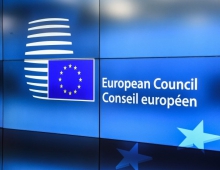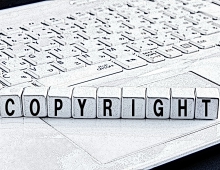
Hollywood takes P2P case to Supreme Court
Hollywood studios and record companies on Friday asked the United States Supreme Court to overturn a controversial series of recent court decisions that have kept file-swapping software legal.
The decisions have been among the biggest setbacks for the entertainment industry in the past several years, as they have tried to quell the rampant exchange of copyrighted materials over peer-to-peer networks such as Kazaa and Morpheus.
In a joint petition to the Supreme Court, the Motion Picture Association of America (MPAA) and the Recording Industry Association of America (RIAA) said that letting the lower court rulings stand would badly undermine the value of copyrighted work.
"This is one of the most important copyright cases ever to reach this court," the groups said in papers filed with the court. "Resolution of the question presented here will largely determine the value, indeed the very significance, of copyright in the digital era."
The ongoing case has helped define the limits of what is legal for software companies, as the entertainment companies have tried to hold peer-to-peer developers responsible for the widespread copyright infringement of people using their products.
Record labels had made this claim successfully against Napster, which ultimately shut down under the pressure of court-ordered network filters. But a Los Angeles federal judge said Grokster and StreamCast Networks, which distribute software allowing people to trade files without any further intervention by the companies, should not share the same fate.
"Defendants distribute and support software, the users of which can and do choose to employ it for both lawful and unlawful ends," federal Judge Stephen Wilson wrote in his 2003 decision. "Grokster and StreamCast are not significantly different from companies that sell home video recorders or copy machines, both of which can be and are used to infringe copyrights."
Wilson's ruling was upheld by the Ninth Circuit Court of Appeals in August.
In their legal briefs, the entertainment industry attorneys said the lower courts' rulings conflict with rulings in the Seventh Circuit against Aimster, another file-swapping company. That court ruled that Aimster was liable for the actions of its users, and ordered the network to be shut down.
The file-swapping companies should have a responsibility to design their products to help counter massive illegal activity, the entertainment companies argued in their legal papers.
"These companies have expressly designed their businesses to avoid all legal liability, with the full knowledge that over 90 percent of the material traversing their applications belongs to someone else," MPAA Chief Executive Dan Glickman said in a statement. "Now is the time for the courts to review these businesses that depend upon violation of copyright."
Technology consumer groups said the lower court's ruling had been right and that the Supreme Court should not accept the case.
"There is no reason the Supreme Court should review the (lower court's) decision," Gigi Sohn, president of Public Knowledge, said in a statement. "That case was based on the principles established in the 1984 Betamax case, which has led to the largest and most profitable period of technological innovation in this country's history. Consumers, industry and our country have all benefited as a result."
From News.com





















